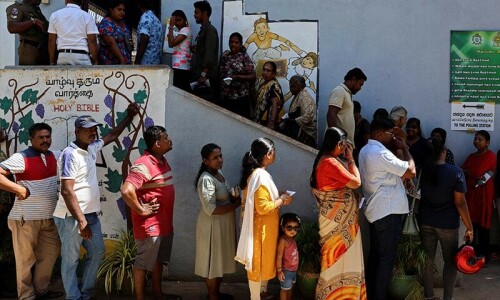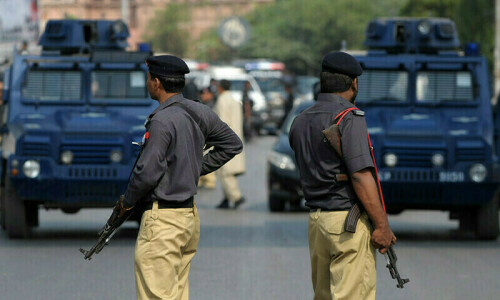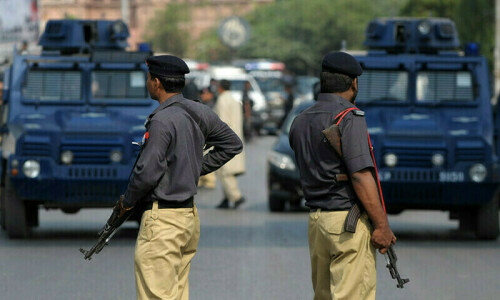DENGUE haemorrhagic fever (DHF) is not an unusual phenomenon for the residents of Swat as at least 30 per cent of them had tested positive for the viral infection in 2012. Of late, people of the scenic valley of Swat have seen a barrage of problems ranging from terrorism incidents to floods and there’s no end in sight. The DHF is the latest threat to haunt Swat people.
The mosquito-borne disease has penetrated into population of Mingora city and surrounding areas of Rahimabad, Amankot, Tahirabad, Malookabad, Rang Mohalla and Bararma. Authorities have recorded hundreds of confirmed dengue positive patients since its onset a fortnight ago.
Initially, the infection was registered in urban areas, but later the virus spread to the rural settings due to which people were gripped by fear of the disease. Experts have claimed that dengue mosquitoes could not survive in cold. The virus thriving in above 16 degrees Celsius and below 37, exists as local temperature has been recorded between 20 and 27 degree Celsius since emergence of the deadly disease.
Besides, the local health officials and technical experts from Punjab have said that dengue was now a local problem as the larvae had been found at different localities of Mingora city.
According to the World Health Organisation, dengue is the most common mosquito-borne disease of humans, which affected 2.5 billion people globally.
Though adequate preventive and curative measures have been taken to contain the disease, common people are scared due to increasing cases of hospitalisation of dengue patients at the Saidu Group of Teaching Hospital (SGTH) since Aug 11.
Local medics and the WHO’s representatives have been giving technical assistance in combating the disease. Initially, the government’s response to the epidemic remained lukewarm, but later it swung into action to prevent the problem from snowballing into a major public health issue.
The Punjab government also assisted in the effort by deputing a team of health officials along with entomology analyzer machine to assist the local doctors.
Dr Zamir Minhas, a member of Punjab team, told Dawn that dengue fever was a social issue and there was a need for dealing with it collectively. He said that the team of doctors from Punjab had given proper training to the local medical staff, conducted field visits and identified the larva to the local medical team.
“Dengue is our collective issue and it should be addressed collectively,” said acting deputy commissioner Farrukh Atique. He said that the residents of Swat should also play their due role in overcoming this health issue.
“We are scaling up public awareness level and once they know about the disease they can take steps for its prevention,” he said.
The acting DC observed that dengue would remain an issue for the coming two to three years and a plan should be chalked out to check this disease in future.
There are two plant species which are considered helpful in repelling dengue mosquitoes, Mr Farrukh said and added that they had requested the department concerned to provide these plants – raspberry and niazbo – to Swat district for the next spring season so that the local administration could make arrangements to plant them in areas most affected by dengue virus.
Tilapia is a type of fish which could play a vital role in eradication of breeding places of dengue mosquitoes. In short, the authorities should adopt all ways and means through which dengue mosquitoes and their breeding places could be eliminated.
Swat has registered over dengue 2,000 cases so far of which 1,317 patients have been admitted to the Saidu Teaching Hospital.
The hospital’s chief executive Dr Taj Mohammad Khan said that some dengue patients had been taking treatment at homes since the disease surfaced last month. He said that the number of affected persons could be in thousands, but they were satisfied over the condition of all the affected people.
Dr Wasil Khan, focal person at Saidu hospital, confirmed that two dengue-affected persons had died, but said that dengue was not the sole cause of their death. He claimed that Hayat Hussain was dengue positive, but his death was caused due to intestinal obstruction.
He added that Momin Khan was suffering from heart, liver and kidney ailments besides dengue fever and his death was caused due to kidney failure.
Amid all such reports there is, however, light at the end of the tunnel. Temperature will fall below 16 degree Celsius by Sept 30 and the environment would not remain conducive to dengue virus to sustain. However, the government and other authorities should continue their efforts to contain the virus and provide timely treatment to the patients.














































Dear visitor, the comments section is undergoing an overhaul and will return soon.